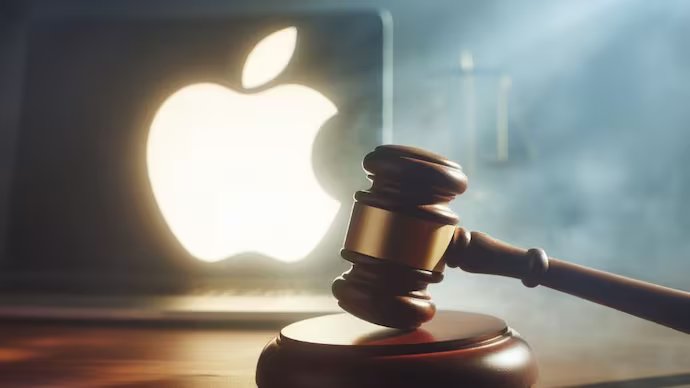In the complex world of legal filings, the United States v. Apple lawsuit stands out for its readability. Spanning 88 pages, the document defies typical legal conventions and reads more like a magazine feature than a standard court complaint. This breaks the mold of what most people expect, particularly in dense areas like antitrust and technology. By making the legal concepts clearer, it becomes accessible to a broader audience.
A Humanized Approach to Legal Proceedings
Unlike the infamous United States v. Microsoft case from 1998, the United States v. Apple lawsuit starts with an engaging narrative. It even references the late Steve Jobs, grounding the case in relatable human terms. This approach makes the lawsuit more digestible for the public, many of whom have their own frustrations with Apple’s practices.
The lawsuit covers issues familiar to millions of Apple users and developers. From limitations imposed by the App Store to difficulties with non-Apple devices, the lawsuit highlights everyday grievances. By addressing these concerns, the Department of Justice (DOJ) aims to give a voice to consumers and developers who feel restricted by Apple’s ecosystem.
Consumer Grievances and Antitrust Concerns
At its core, the United States v. Apple lawsuit addresses antitrust concerns. The DOJ argues that Apple’s control over the App Store creates a monopoly, stifling competition. The policies in question, like the 30% commission on app sales, are seen as restrictive to developers. The lawsuit also highlights Apple’s rules that prevent apps from offering alternative payment methods, ensuring Apple’s continued control over transactions.
Many developers have voiced frustration over these policies, claiming they limit their ability to innovate. The United States v. Apple lawsuit reflects a growing sentiment in the tech world that Apple wields too much power, ultimately to the detriment of both consumers and developers.
Parallels with United States v. Microsoft
The United States v. Apple lawsuit draws comparisons to the landmark United States v. Microsoft lawsuit. In that case, Microsoft was accused of bundling Internet Explorer with Windows, stifling competition. Similarly, the DOJ argues that Apple’s tight control over the App Store limits consumer choice, creating an uneven playing field for developers.
By framing the Apple case in this way, the DOJ positions itself as a defender of competition in the digital age. Just as the Microsoft case led to industry changes, the United States v. Apple lawsuit could have a lasting impact on how tech companies operate, particularly in controlling their platforms.
A Broader Conversation About Market Competition
The United States v. Apple lawsuit is not just about Apple—it also raises broader questions about market competition and consumer rights. As more of our lives are dependent on digital platforms, how these platforms are regulated becomes crucial. Apple argues that its strict control over the App Store ensures security and a smooth user experience. However, the DOJ challenges whether such tight control is necessary, suggesting that it restricts competition unfairly.
Apple’s critics argue that the company’s policies limit consumer choice, particularly in app marketplaces. The DOJ aims to dismantle some of these restrictions, opening the door for alternative app platforms that can compete fairly on iOS.
Implications for the Tech Industry
The outcome of the United States v. Apple lawsuit could reshape the tech landscape. If successful, the lawsuit could force Apple to loosen its control over the App Store, allowing developers more freedom and consumers more options. This could lead to the introduction of alternative app marketplaces and a more competitive app ecosystem.
Beyond Apple, the lawsuit could set a regulatory precedent for other tech giants. As companies like Amazon and Google continue to dominate their markets, this case highlights the growing need for regulation in the digital space. The United States v. Apple lawsuit is part of a larger movement toward more governmental oversight of big tech companies.
Conclusion: The Future of Competition and Innovation
As the legal battle unfolds, the United States v. Apple lawsuit could have far-reaching implications for the tech industry. By addressing key issues like app store control and market competition, this case may set new standards for how tech companies operate in the digital economy. Whether the DOJ wins or not, the case has sparked crucial conversations about the balance between innovation, regulation, and competition in a rapidly evolving digital landscape.
For those interested in the latest tech developments, check out the best smartphones for productivity and beyond. For in-depth analysis of tech trends and legal insights, visit JW7’s platform to explore more.


